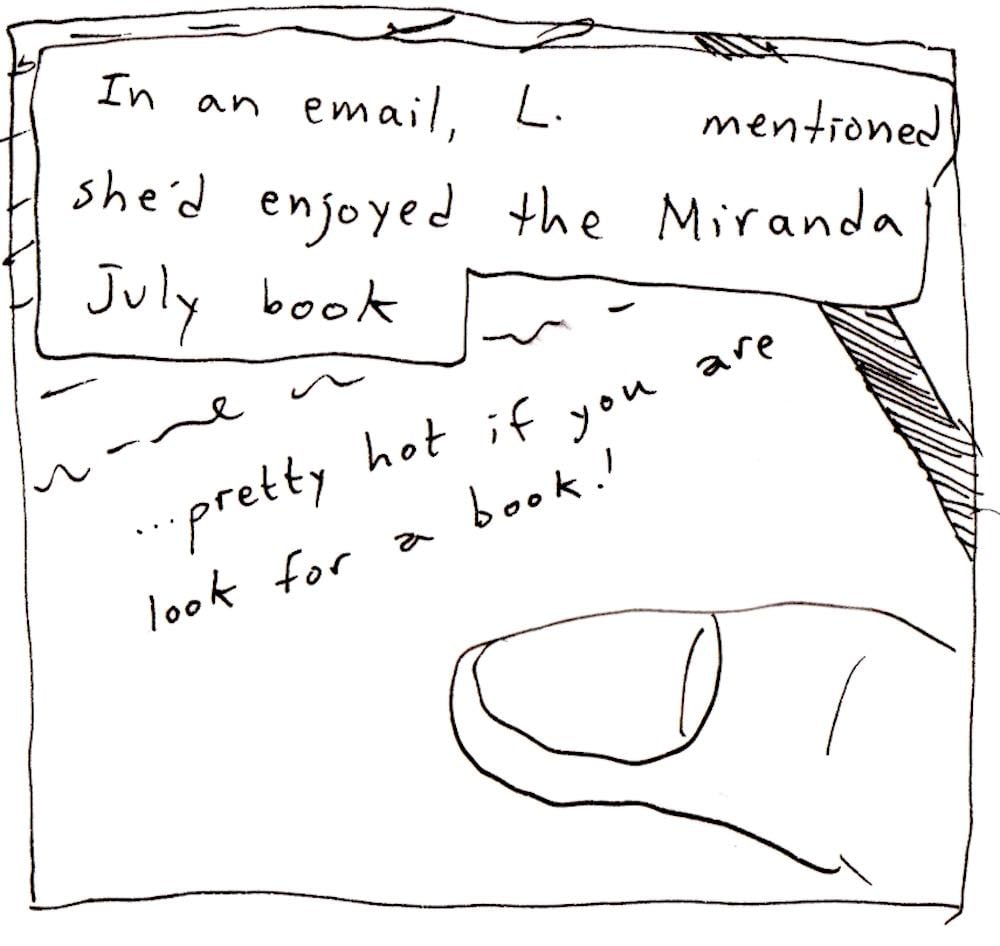I ran across an interesting term/concept in Miranda July’s All Fours: third things. A character in the book attributes it to “the Quakers” and describes it like so:
It’s a topic of conversation that doesn’t belong to either party. The soul, usually so shy, can speak more easily through this Third Thing, at a slant.
It’s unclear if Quaker author Parker J. Palmer coined this term, but his 2004 book A Hidden Wholeness popularized the concept of third things. From The joy of third things:
In his book A Hidden Wholeness: The Journey Toward an Undivided Life, Quaker writer Parker J. Palmer talks about “third things,” how people can make emotional connections while talking about something they’re experiencing together. This can happen when people attend a concert or play, view a painting or even watch a baseball game.
Palmer believes that the soul is shy and that asking another person to immediately share something very vulnerable can scare them off. Connecting while engaged in third things is a gentler way to communicate.
Many people have fond memories of special conversations that transpired while they were doing the dishes with a parent or going fishing with a friend. This third thing they do together makes it easy and comfortable for them to converse more deeply, often without even making eye contact.
Many of the best conversations I have with my kids are facilitated by third things: watching a movie, playing video games, kicking a soccer ball around, playing mini golf, or running errands in the car. Conversation is no different that any other activity (like, say, shooting free throws or dancing): it’s much easier and open when you’re not actually thinking too hard about it.
I am reading All Fours by Miranda July right now and it hooked me right out of the gate. Granta published a excerpt of the book back in April – you can use it as a barometer for whether you’d like to try the whole thing.
I came into the house my usual way, like a thief. I turned the lock slowly and shut the door with the handle all the way to the left to avoid the click of the lock. Took off my shoes. Rolled my feet from heel to toe, which is how ninjas walk so silently. I was often two or three hours late because I had trouble admitting that I was planning to talk to Jordi for five hours. But how could it be any shorter, given that it was my one chance a week to be myself? My heart was pounding as I tiptoed through the living room. I know the quietest way to wash up, too: picking up and putting down the cup and face wash with this technique where you pretend each thing is heavier than it is. Imagine the cup is made of brick, so that as you put it down you’re also lifting it up, resisting its weight — the opposite of this would be just dropping it, letting gravity put it down. When I walk past Harris’s bedroom I think glide, glide, glide.
See also Edith’s diary comics: Reading Miranda July’s All Fours.


Links:
Have you read it? What did you think?
Artist and filmmaker Miranda July used to shoplift as sort of a useful hobby.
But it wasn’t just about the supermarket — the whole world was one giant heist. It goes without saying that I used magnets to reset the Kinko’s copy counters to zero, and carried scissors to cut alarm tags out of clothes. Everyone I knew did these things. I say this not to excuse myself but just so you can visualize a legion of energetic, intelligent young lady criminals. Anytime anyone we knew flew into Portland, we urged her to buy luggage insurance and allow us to steal her bag from the baggage carrousel. The visiting friend then had to perform the role of the frantic claims reporter and was given a cut of the insurance money. Some friends were up for this; others thought it was an inhospitable thing to ask.







Stay Connected